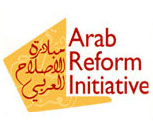Syria Insight – by Arab Reform Initiative
 The conference that hosted representatives of the Syrian opposition in Riyadh on Dec. 9-10 was an important milestone both for the opposition and the international community. Key lessons can be drawn from this meeting:
The conference that hosted representatives of the Syrian opposition in Riyadh on Dec. 9-10 was an important milestone both for the opposition and the international community. Key lessons can be drawn from this meeting:
The conference illustrated the shared vision among Syria’s different political opposition factions and a majority of the armed groups.There was little or no discord among them as they articulated a firm commitment to a negotiated settlement and to a civil, inclusive Syrian state.
The conference started a process of self-vetting among Syria’s armed groups on the ground, forcing them to announce their commitment to engage in the political process or to reject it.Reactions from different groups to the Riyadh communiqué have shown that the extremist Islamist groups are against it, while the majority of armed and civilian opposition groups welcomed it. This makes the Riyadh conference a useful starting point for the classification of terrorist and non-terrorist groups on the ground.
Conflicting statements in response to the Riyadh communiqué highlight internal dynamics within Ahrar al-Sham—one of the most influential Islamist armed groups in Syria—that reveal the existence of two currents inside the group and indicate a potential split within it in the near future. The pragmatist leadership of the group signed the communiqué, but radical members issued a statement against it.
The Ahrar al-Sham case suggests that the best way to counter extremist groups is a multi-step process that starts with attempts to dismantle them from within, leaving military means as a response to the diehard elements inside such groups.The political leadership of the Syrian opposition is engaged in intensive discussions with groups on the ground like Ahrar al-Sham. This dialogue aims at attracting pragmatists within those groups; the residual part of the groups that refuses political dialogue can then be isolated and countered through other means.
The Riyadh conference highlighted the urgency of the need to include women in the political process.Women constituted less than 10% of the participants in the conference, but succeeded in securing an agreement to have 25% female representation in Syria’s transitional institutions. The commitment was only verbal however and women vowed to continue lobbying to ensure that the commitment is enshrined in future texts.
Syria Insight is a regular newsletter published by the Arab Reform Initiative to highlight key issues related to the Syrian crisis.